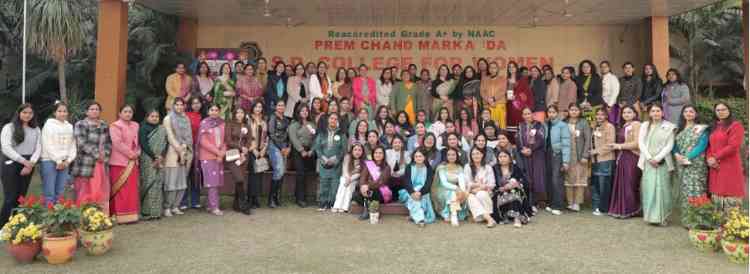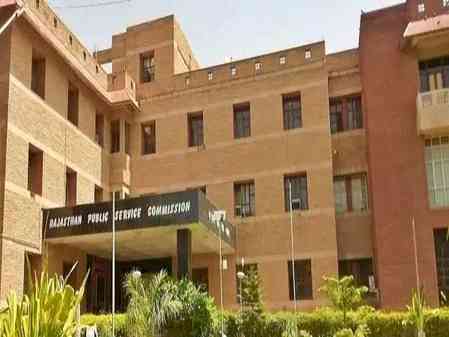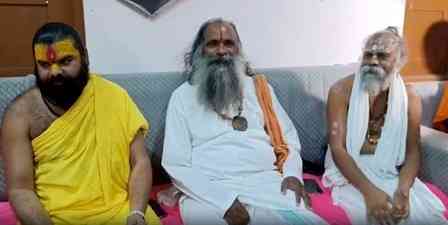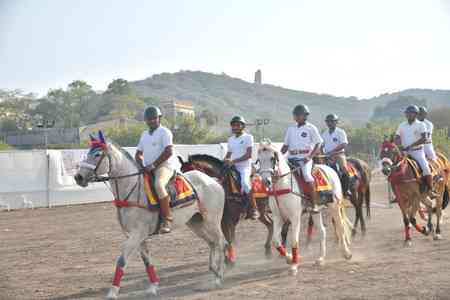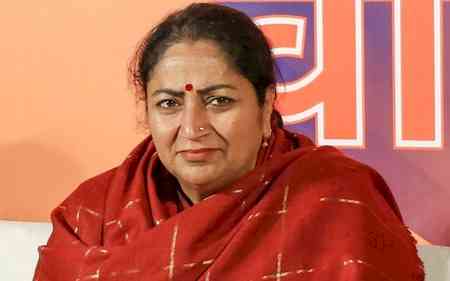3-day Online International Conference on ‘Ideology and Vision of Mahatma Gandhi: Global Relevance in 21st Century"
The event begins at PU
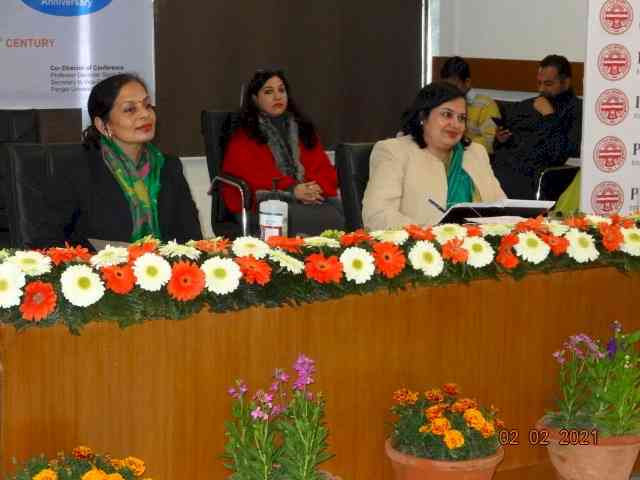
Chandigarh: 3-day Online International Conference on ‘Ideology and Vision of Mahatma Gandhi: Global Relevance in 21st Century" begins at PU
Mahatma Gandhi has been an unwavering beacon for civil rights everywhere - Deliberations by Experts
Day I, Inaugural Session and Session II on 1 February, 2021
The inaugural session of the 3-day online International Conference on ‘Ideology and vision of Mahatma Gandhi: Global Relevance in 21st Century” successfully began on Feb 1, 2021. The International Conference is a joint endeavour of Panjab University, Chandigarh in collaboration with India Foundation, New Delhi, Nottingham Trent University, UK and University of Nottingham, UK.
Prof. Anju Suri, Dean, International Students, PU in her welcome address, expressed her gratitude to the participants from a spectrum of international universities and institutions who were a part of the deliberations of the 3-day conference.
Prof. Raj Kumar, Vice Chancellor, Panjab University in his inaugural remarks spoke about the continued relevance of the ideology of Mahatma Gandhi whose ideas and thinking remains very pertinent even in the changing realities of the 21st century.
PU VC delved upon how Gandhiji’s emphasis on principles of trusteeship, participation, democratic values, sacrifice and equitable social systems have been carried forward by even the modern Indian in general.
The Guest of Honour, Prof. Cillian Ryan, Pro Vice Chancellor, International Nottingham Trent University, UK in his remarks touched upon the fact that Mahatma Gandhi has been an unwavering beacon for civil rights everywhere. In the personal context as an Irishman, Prof Cillian Ryan elaborated how Gandhiji continues to inspire the Irish freedom movement to this day. He also reminded the online audience from across the globe how various global leaders from Nelson Mandela to Martin Luther King junior to Barack Obama have drawn lessons and inspiration from Gandhiji’s teachings to instil faith and courage in the people fighting for their rights in various parts of the globe.
Prof. Robert Mokaya, Pro Vice Chancellor Global Engagement, University of Nottingham, UK, Guest of honour, began his remarks by acknowledging the premier position of Panjab University as a strategic partner and keystone of the Indian Collaborations of the Nottingham University, UK which already operates in UK, China and Malaysia. Prof. Mokaya explained how the National Education Policy of the Government of India is based on increasing the access, affordability, reach, penetration and accountability of the education system. The conference that brings people from different walks of life from across the world together, itself exemplifies the values and ideology of Gandhiji. He also remarked on how as a young child growing up in Kenya, he was exposed to the teachings of Gandhiji and even at such a young age, was able to realise the significance and applicability of the ideas of this great icon for humanity. He remembered how Gandhiji visited the Nottingham University in 1931 as Gandhiji’s nephew J.B Joshi was a student there at the time. Mahatma Gandhi delivered a speech at the Great Hall. There is still a plaque at the boarding house where Gandhiji visited his nephew.
Prof. Sunaina Singh, Vice Chancellor, Nalanda University, Rajgir, Bihar delivered the keynote address. In her presentation, Prof. Sunaina Singh elaborated on how Gandhiji’s concept of leadership with purpose, vision, ideals and equality remains relevant even today. His principles of courage, environmental advocacy, non-cooperation, non-violence, tolerance etc are abiding symbols of humanity even today. She reminded the audience that when Dr Martin Luther King visited India in 1959, he was asked how relevant was Gandhi? Dr. King replied that a global icon of Gandhi’s stature remains relevant as long as there will be humanity living on earth. Even the Dalai Lama has expounded on many occasions his admiration for Gandhi and how Gandhian philosophy and thinking continues to inspire him. The sophisticated approach with which Gandhi applied the ancient Indian philosophy of non-violence and tolerance to politics in the 20th century proved to be as novel as it was innovative and wonderfully effective.
The Inaugural Session was moderated by Mr. Come Carpentier, Consultant, India Foundation. The Conference concluded with the Vote of Thanks delivered by Prof. Anju Suri on behalf of Ms. Lalitha Kumaramanglam, India Foundation, New Delhi in absentia. The 3day conference has a rich array of speakers from various institutions and universities across the globe, who will reflect on how the ideology and vision of Mahatma Gandhi remains relevant and germane even today, while the world undergoes transformational change.
SESSION II, 1 February,2021
Session II on Day I of the Conference was held between 3:00 and 6:00 PM (IST) on the theme, Gandhi’s Ideology and Vision of Sustainable Living and was moderated by Prof. Anupama Sharma, Dean, Alumni Relations, Panjab University, Chandigarh. In this Session, the following five eminent scholars delivered their lectures on following respective themes:
1) Shri Sudarshan Iyenger, Former Vice-Chancellor, Gujarat Vidyapeeth, Ahmadabad on, ‘Gandhi’s Economic Thought and the Present Economic System’
2) Shri Satyendra Tripathi, Director, Lokniti, India Foundation on ‘Sustainable Living and Global Natural Resources’
3) Dr. Glenn Williams, Principal Lecturer, School of Social Sciences, Nottingham Trent University, UK on ‘The Role of Gandhian Philosophy in Crafting a More Just, Sustainable and Resilient way of Living – Psychological Insights’
4) Dr. Amrit Sagoo, Head of Department, School of Architecture Design and Built Environment, Nottingham Trent University, UK on ‘Embedding Gandhian Philosophy in Built Environment Education’
5) Dr. Vijay Rana, Editor, Senior NRI Journalist, London, UK on ‘Khadi, Handloom and Village Development’
Shri Sudarshan Iyengar while sharing his views on ‘ Gandhian Economic Thought and the Present Economic System’ stated the fact that Mahatma Gandhi was a great practitioner who criticised industrialisation and emphasised on decentralised economy, thus giving the most important place to rural based economy. In Gandhian perspective, Indian society has to be large rural society. Economic prosperity has to be limited to decent and dignified living. He remarked that callosal mistake the modern economic science has made is interference with the preferences that is causing imbalance between needs and limits. Gandhi urged to limit the wants. He emphasised on understanding the sense of proportion and to look beyond material gains to be happy. Gandhi emphasised on Aparigriha, Swadeshi and moral values. Economy for Mahatma Gandhi is not an objective study; it is a subjective behaviour. Economic development is inclusive in nature.
Sri Satyendra Tripathi in his presentation on ‘Sustainable Living and Global Natural Resources’, talked about the pandemic and the challenges it poses. Shri Tripathi drew our attention on the current challenges like population growth and climatic changes being faced by the world at present. Challenges also include the concerns of water shortage, food security, political instability due to fight for resources. He is of the view that these resources need to be identified and preserved. He finds a solution to all these challenges in Gandhi's concept of Swaraj, that is, self-rule or self-governance . He urges us to use self-help or community-based approach. ‘Aatmanirbhar Bharat’ is a call for self-help. He emphasised on adopting Gandhian model which comprises of village and the world, thus making states only as agents. The main focus should be on participation of locals in a bigger way in society and governance; society needs to cooperate with the government for governance. He appreciated various projects and initiatives taken by the Government of India like Yoga,Water projects across Chhattisgarh etc.
Dr. Glenn Williams in his lecture on ‘The role of Gandhian philosophy in crafting a more Just, Sustainable and is Resilient ways of living Psychological Insights’ said that Gandhiji championed the cause of unity of all religions and the downtrodden. He was of the belief that progress is measured by the state and condition of the most vulnerable and poor. Gandhiji valued diversity, ecological-conscience and believed in humility, self-sacrifice and temperance. He gave importance to collective resilience and passive resistance. Dr Williams defined community psychology as working with people in their wider social context beyond seeing them purely as individuals. He acknowledges the role of systems that exist around people relating to place history etc. He uses a multi-layered focus to understand this by dividing them into micro, meso and macro systems, i.e., from family to school to social norms. The core values of community psychology are power, social inclusion collaborating with the others etc. He was of the view that to empower global community psychology , there are 4 factors ; Participatory democracy, protecting human rights , balancing the global with local and encouraging sustainable lifestyles. He believes that we should move away from the Western individualisation and work as community. According to him Gandhi's commitment to what we now call sustainability, is perhaps more relevant today than what it was in his own times.
Talking about ‘Embedding Gandhian philosophy in Built Enviornment Education’, Dr. Amrit Sagoo quotes David Attenborough ‘A life on our Planet’ . He says no other species has full control on earth as we have now . He talked about various landscape’ changes due to global warming and sees it as a formidable challenge, the world has to deal with. He sees the solution in smart built environment and smart living. He spoke about various challenges faced by civil engineers. He shared his view on the ways to develop, specific skill sets, in sustainability like building multidisciplinary teams, resource efficiency , pollution control, etc. He focuses on the need to remain relevant, innovative while facing meet the challenges ahead. He believes in reshaping higher education through engagement with industry, local, regional, national and international community and to deploy resources to increase efficiency through creating teams and collaborating work practices.
Dr. Vijay Rana in his very interesting talk on ‘Khadi, Handloom and Village Development’ shared his views on how Gandhiji was disenchanted with the Western civilisation and wanted to find alternative way. He gave importance to the Swadeshi and spinning wheel to free Indians from idleness and poverty. By 1918, he was weaving pure Khaddar and by 1919, people followed him and the Congress made it its uniform. Mahatma Gandhi made khadi the symbol of economic independence, unity, spirituality and freedom. Gandhiji's vision was rural India and Hind Swaraj and he gave importance to Panchayats. He emphasised on simple life free of material greed. According to him, an ideal village should having proper arrangements of sanitation, sunlight, courtyard streets, streets free of dust, houses of worship , community centres. Gandhiji held the view that primary and secondary education with technical training should be compulsory and free.
The Session invited discussions and deliberations from the participants and concluded with the Vote of Thanks delivered by Professor Anupama Sharma.


 cityairnews
cityairnews 

